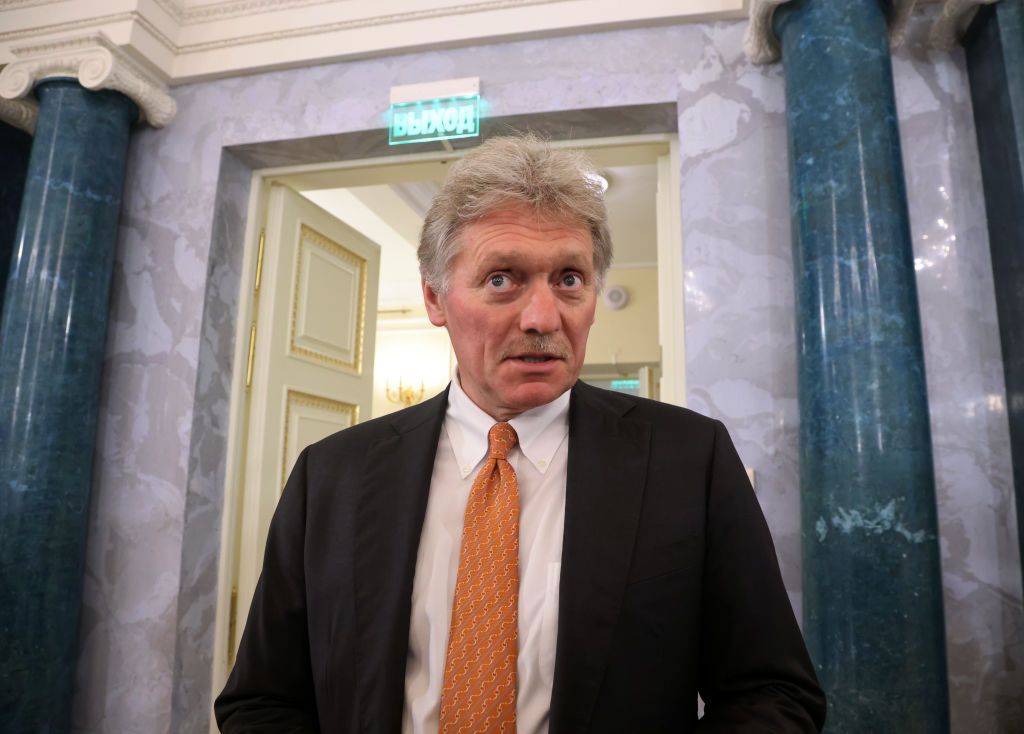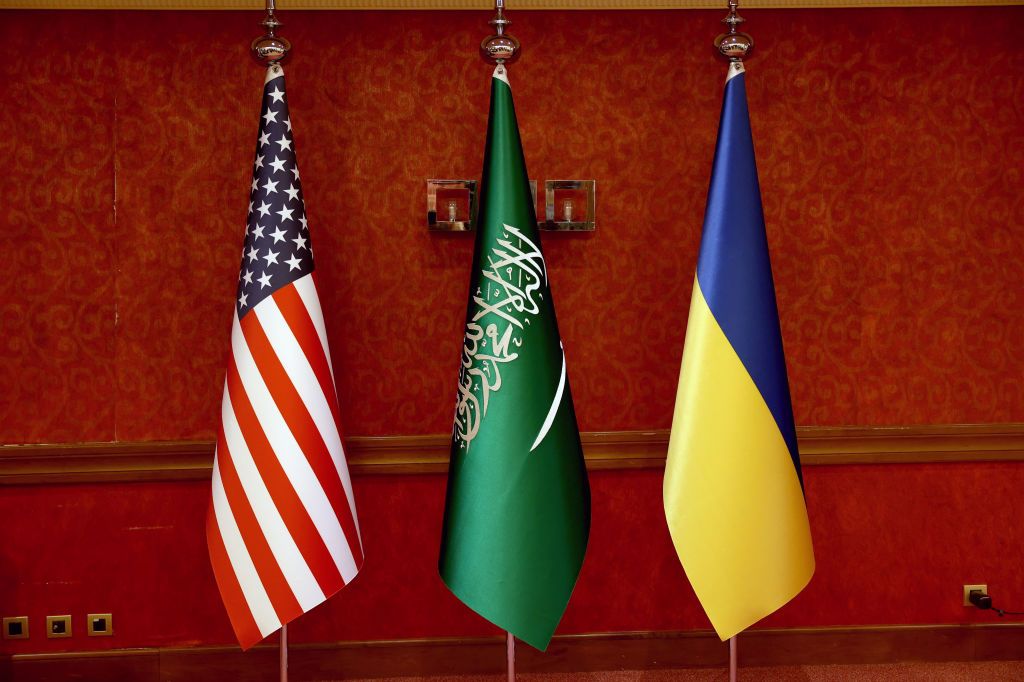"According to the participants of the performances, their goal is to remind the civilized world of the barbaric actions of Moscow, which for many years and decades has systematically violated international law," a source in Ukraine’s military intelligence agency (HUR) told the Kyiv Independent.
"I have great hope that an agreement for a ceasefire in Ukraine will be reached this weekend," German Chancellor Friedrich Merz said on May 9, shortly before traveling to Kyiv alongside the leaders of France, Poland, and the U.K.
U.K. Prime Minister Keir Starmer, French President Emmanuel Macron, German Chancellor Friedrich Merz, and Polish Prime Minister Donald Tusk will arrive in Kyiv early on May 10.
The United States embassy in Kyiv on May 9 issued a warning that Russia could launch "a potentially significant" attack in the coming days, despite Putin's self-declared Victory Day "truce."
The sanctioned oil tankers have transported over $24 billion in cargo since 2024, according to Downing Street. The U.K. has now sanctioned more shadow fleet vessels than any other country.
The sanctions list includes 58 individuals and 74 companies, with 67 Russian enterprises related to military technology.
Washington and its partners are considering additional sanctions if the parties do not observe a ceasefire, with political and technical negotiations between Europe and the U.S. intensifying since last week, Reuters' source said.
Despite the Kremlin's announcement of a May 8–11 truce, heavy fighting continued in multiple regions throughout the front line.
Putin has done in Russia everything that Luiz Inacio Lula da Silva had been against in Brazil.
The Kyiv Independent’s contributor Ignatius Ivlev-Yorke spent a day with a mobile team from the State Emergency Service in Nikopol in the south of Ukraine as they responded to relentless drone, artillery, and mortar strikes from Russian forces just across the Dnipro River. Nikopol is located across from the Russian-occupied Zaporizhzhia Nuclear Power Plant in the city of Enerhodar.
Content of US-Russia talks in Riyadh 'will definitely not be published,' Kremlin says

The content of the U.S.-Russia talks in Riyadh will not be made public, Kremlin spokesperson Dmitry Peskov said on March 25, state-owned media outlet TASS reported.
"We are talking about technical negotiations. These negotiations are immersed in details, so, of course, the content of these negotiations will definitely not be published. This is not to be expected," the spokesperson said.
Peskov added that the results of the consultations had been relayed to Moscow and Washington and are currently under review.
His remarks came after 12 hours of U.S.-Russia negotiations on March 24. A new round of U.S.-Ukraine talks took place on March 25, following an initial meeting on March 23.
The negotiations are part of U.S. President Donald Trump's ongoing efforts to broker a ceasefire and a broader peace agreement in Ukraine.
The U.S. initially planned to meet with both Ukraine and Russia on the same day, but President Volodymyr Zelensky later announced that Kyiv's delegation would meet with U.S. officials on March 23, a day before the U.S.-Russia talks.
Peskov confirmed on March 24 that the Black Sea Initiative was a key topic in the U.S.-Russia talks in Riyadh. Similar agreements existed under the 2022 Black Sea Grain Initiative, brokered by the U.N. and Turkey.
Despite the ongoing war, this initiative allowed Ukraine to export agricultural products via the Black Sea. The deal, which helped stabilize global food prices, collapsed in July 2023 when Moscow withdrew.
Since then, Russian forces have repeatedly targeted Ukrainian port infrastructure.
A Russian ballistic missile struck Odesa's port on March 1, damaging facilities and a Panamanian-flagged civilian ship. Several other foreign vessels have been hit, including in October 2024, when multiple ships sustained damage in separate Russian strikes.
According to Reuters, the U.S. delegation in Riyadh was led by Andrew Peek, a senior director at the National Security Council, and Michael Anton, a senior State Department official.
The Russian delegation included Grigory Karasin, the chairman of the Federation Council Committee on International Affairs, and Sergei Beseda, an adviser to FSB director Alexander Bortnikov.
Karasin later described the talks as proceeding in a "creative way," saying the U.S. and Russian delegations "understand each other's views," as quoted by Russian state news agency Interfax.
The negotiations come amid concerns that Moscow is deliberately stalling peace efforts to strengthen its position. The Kremlin claimed last week that it had ordered a 30-day halt to strikes on Ukraine's energy infrastructure following a phone call between Trump and Putin.
Kyiv also supported a mutual halt on energy strikes but later accused Russia of continuing attacks on civilian targets.
The U.S. and Ukraine initially backed a broader 30-day ceasefire that would include halting ground operations, but Russia rejected the proposal unless it included conditions that would undermine Ukraine's defense capabilities, such as suspending foreign military support.

Most Popular

After 3 years of full-scale war in Ukraine, Europe announces plan to ban all Russian gas imports

Ukraine, Europe's ceasefire proposal includes US security guarantees, no recognition of Crimea, Reuters reports

Journalist Roshchyna's body missing organs after Russian captivity, investigation says

After Russia's deadly attack on Kyiv, Vance reposts denunciation of Zelensky

Ukrainian sea drone downs Russian fighter jet in 'world-first' strike, intelligence says
Editors' Picks

How medics of Ukraine’s 3rd Assault Brigade deal with horrors of drone warfare

As Russia trains abducted children for war, Ukraine fights uphill battle to bring them home

'I just hate the Russians' — Kyiv district recovers from drone strike as ceasefire remains elusive



